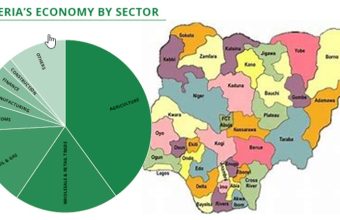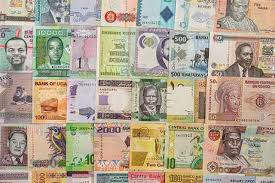Top News

BREAKING: US Military Unleashes Coordinated Airstrike on Terrorist Camps in Nigeria
December 26, 2025
No Comment
123 Views

Kidnapping Industry Booms as Ransom Payments Hit N2.57bn in One Year
December 26, 2025
No Comment
89 Views


Funke Akindele’s Behind-The-Scenes Shatters Nollywood Box Office Records in 2025
December 23, 2025
No Comment
74 Views

7 Most Powerful Chief Operating Officers Powering Nigeria’s Digital Economy
December 21, 2025
No Comment
80 Views

Anambra Launches SmartGov AI platform For 24/7 Government Services.
December 21, 2025
No Comment
70 Views

5 Most Expensive Nigerian States to Fly to This Christmas
December 21, 2025
No Comment
73 Views

The African Tech Companies That Laid Off the Most Workers in 2025
December 19, 2025
No Comment
131 Views

FG Debt Service Gulps 72% of Revenue in 7 Months — Budget Office Data Reveals
December 19, 2025
No Comment
133 Views

5 Things The U.S. Travel Restrictions Mean for Nigerians With Visas and New Applicants
December 19, 2025
No Comment
123 Views










Popular

Kidnapping Industry Booms as Ransom Payments Hit N2.57bn in One Year
December 26, 2025Season’s Greetings From TechTV
December 26, 2025Funke Akindele’s Behind-The-Scenes Shatters Nollywood Box Office Records in 2025
December 23, 2025Featured News
NCC Tasks Telcos on Network Security, Consumer Safety
June 15, 2023
The African Tech Companies That Laid Off the Most Workers in 2025
December 19, 2025
Top 10 Highest-Grossing Movies in Nigeria’s Box Office (2025)
December 12, 2025
Trump Raises Antitrust Concerns Over Netflix–Warner Bros. Merger Deal
December 12, 2025
Nigeria’s EFCC Warns OPay Over Weak KYC and Fraud Vulnerabilities
December 12, 2025
Editor's Choice
5 Most Expensive Nigerian States to Fly to This Christmas
December 21, 2025
As Nigeria’s Christmas travel season takes flight, a stark financial...
5 Things The U.S. Travel Restrictions Mean for Nigerians With Visas and New Applicants
December 19, 2025
Nigeria’s inclusion in the United States’ expanded travel restriction...
7 Most Powerful Chief Operating Officers Powering Nigeria’s Digital Economy
December 21, 2025
The Chief Operating Officer (COO) plays a defining role in shaping the...
Abia State Enacts Startup Law, Plans to Become South-East Tech and Innovation Hub
December 16, 2025
Abia State has taken a major step toward positioning itself as a leading...
Africa’s Best-Performing Currencies in November 2025
December 12, 2025
African currencies closed November 2025 with varied outcomes, as only a...
Africa’s Investment Shake-Up: Small Economies Outshine The Giants in 2025/2026 Rankings
October 29, 2025
According to Rand Merchant Bank’s Where to Invest in Africa 2025/26...
Recent News
Season’s Greetings From TechTV
16 hours ago













































